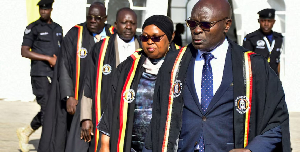The Ghana-China Friendship Association (GHACHIFA), a group seeking to foster friendly relations and non-governmental co-operation between the two countries, has been inaugurated in Tamale.
The group, among other things, aims at promoting cultural and educational exchanges, joint trade missions, networking, building business contacts, as well as strengthening bilateral relations between the governments of both countries.
Alhaji Limuna Mohammed-Muniru, the Northern Regional Minister, speaking at the inaugural ceremony in Tamale said China's rapid development over the past years should form the basis for friendship, because there were lessons to be learnt from them.
He appealed to the business community to evaluate their capacities to be able to operate in the global economy.
Alhaji Mohammed-Muniru noted that most opportunities for Ghanaians to forge partnerships with Chinese investors in the past had been wasted, because entrepreneurs did not have the requisite know-how to match Chinese investors.
Mr Kojo Amoo-Gottfried, a retired diplomat, and President of GHACHIFA, said the Association was to consolidate the diplomatic relations and co-operation between Ghana and China.
The vision of GHACHIFA, he said, was to become a vibrant organization throughout the country to enable the country learn from the developmental path of China.
Ms Sun Boahong, Chinese Ambassador in Ghana, said the bilateral relations had been strengthened and deepened in political, economic, cultural and other fields in recent times, and expressed the hope that the establishment the of Ghana-China Friendship Association would play a positive role to further promote friendship and collaboration between China and Ghana.
She noted that Northern Region had the potential in agriculture and other natural resources that needed the service of the youth to tap into it to help reduce the unemployment rate in the region.
Ms Boahong said the two countries' development strategies were highly complementary and adaptable to each other, and therefore called for more exchanges between the two sides on culture, education, medical care and mass media.
Regional News of Monday, 18 May 2015
Source: GNA












